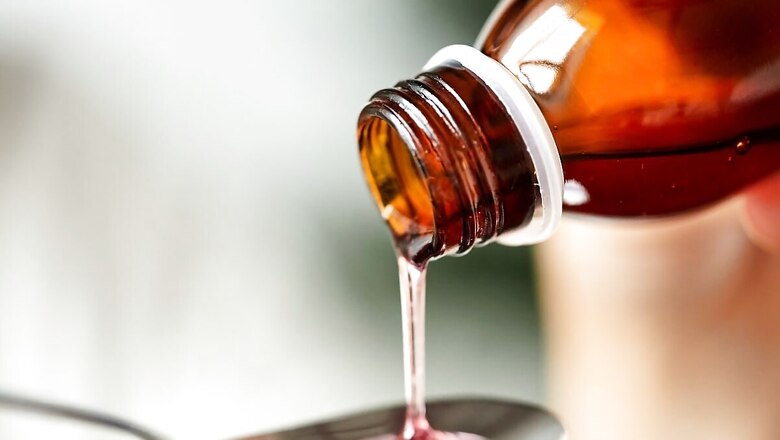
views
In a move to uphold the manufacturing standards of cough syrups, the health regulator of Uttarakhand has decided to ban the production of syrups by drug makers who cannot conduct sample testing through gas chromatography, News18 has learnt.
Gas chromatography is a method employed to segregate and identify the chemical constituents within a sample mixture, leading to the determination of their presence or absence, as well as their respective quantities. The method is used to detect the presence of harmful chemicals, including the controversial diethylene glycol (DEG) or ethylene glycol (EG).
Pharma companies that do not have the gold standard of testing will be allowed to open manufacturing lines only after submitting proof of buying the testing equipment followed by the physical inspection.
The move comes after allegations of a severe outbreak of cough syrup-related poisoning, causing the deaths of children in Gambia, Uzbekistan, and Cameroon since the middle of last year.
Tests conducted by the World Health Organization and other authorities revealed that the syrups associated with the children’s deaths contained elevated levels of diethylene glycol (DEG) or ethylene glycol (EG).
DEG and EG serve as industrial solvents and antifreeze agents, posing a fatal threat even in small quantities when ingested.
Uttarakhand Regulator Moves to Curb Quality Issues Amid Rising Demand
The regulator has made a move anticipating quality issues amid the increase in consumption due to the winter season.
“Please refer to the quality concerns reported for Propylene Glycol (PG) supplied to cough syrup manufacturers. In this context, various measures have been taken to ensure the safety and efficacy of cough syrups marketing in domestic as well as export market,” said the letter written by Tajbeer Singh, drug controller of Uttarakhand.
The letter written on December 21, accessed by News18, was sent to all drug makers in the hill state.
“With the onset of the winter season and increased consumption of cough syrups, chances of quality concerns may arise,” it said. “Therefore, in the larger interest of public health safety, it has been decided that the drug manufacturing firms established in Uttarakhand State who do not have Gas Chromatography (GC) for testing DEG & EG in cough syrups shall no more be allowed to manufacture cough syrups with immediate effect.”
“Those who want to continue shall procure ‘Gas Chromatography’ and a proof of same such as an invoice shall be submitted to the office and further permission to manufacture cough syrup shall only be granted after physical verification of the same,” the letter added.
Since June, India has enforced mandatory testing for the export of cough syrups and has intensified the examination of pharmaceutical manufacturers. Recent risk-based inspections have unveiled a series of shortcomings, including inadequate documentation and a deficiency in self-assessment.
Central Govt Asks States to Focus on Quality of Cough Syrups
On December 5, the regulatory body, Central Drugs Standard Control Organisation (CDSCO), issued an advisory to drug inspectors across India to ensure compliance with good manufacturing practices in the production of cough syrups by ensuring the use of quality raw materials, including active pharmaceutical ingredients and excipients.
The advisory signed by CDSCO’s chief, Drug Controller General of India (DCGI) Rajeev Singh Raghuvanshi, said: “Drug manufacturers are required to manufacture the drugs adhering strictly to the conditions of manufacturing licence and prescribed Good Manufacturing Practices (GMPs) to ensure that the drugs manufactured for marketing are of quality standards and meets the parameters of quality, safety and efficacy.”
“In case of manufacture of cough syrups, various critical excipients like propylene glycol, glycerine, sorbitol etc are used,” it said, adding that “the manufacturers are required to ensure that these excipients meet the regulatory standards of quality so as to avoid any contamination in the formulations manufactured by using such excipients.”
“During winter seasons, there may be an increase in the use of cough syrups in the country,” the advisory cautioned.

















Comments
0 comment